Having the mandate to represent its members' interests, trade unions have to improve the working conditions of their worker's members. One of the ways is through advocacy, which is a systematic effort to change a policy, a situation, or a law that does not favour marginal groups.
Throughout time, data use in advocacy has been more relevant than before. Therefore, data-based advocacy occurs to strengthen the fundamental advocacy works. With data, objective empiric can be generated, which makes it more credible. Moreover, data use in advocacy helps people to analyze problems comprehensively and systematically.
Based on that, the Makin Terang team held a Data-Based Advocacy Workshop for trade union leaders of garment, textile, and footwear factories on 9-11 June 2023. There are 32 participants who are from three union partners of Makin Terang: SPN, TSK-SPSI, and FSB Garteks. They were also the DecentWorkCheck Survey respondents in 2022.
It is hoped that the workshop will help them to discover their working conditions reflected in the survey. Hence, the participants restrengthen their experiences and skills of organising advocacy.
FIRST DAY, 9 JUNE 2023
The first day of the workshop started with an introduction to the "Makin Terang" programme by Lydia Hamid from Gajimu, participant introductions, and workshop orientation. The activities continued with a "Genuine Trade Union" session facilitated by Rita Tambunan from Mondiaal FNV. 'Genuine' in this context refers to being independent, democratic, sustainable, founded, and managed by and for the workers themselves. A genuine trade union not only have the ability to produce labour law that prioritise workers at the factory level but also national labour laws. In her presentation, Rita shared the journey of genuine trade unions throughout the years, which provided lessons learned.
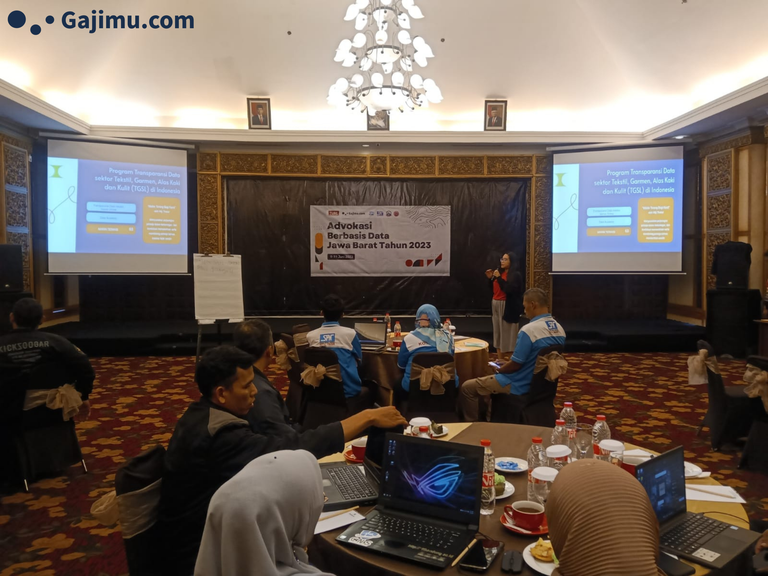
In the next session, Riefqy Zulfikar from TURC invited participants to discuss collective bargaining in a broader sense. In this context, collective bargaining historically occurs even before legal instruments such as legislation or international conventions exist. Therefore, the absence of legal regulations in collective bargaining or Collective Bargaining Agreement (CBA) negotiations should not be a problem.
Closing the first day, Riefqy Zulfikar presented the objectives, scope, advocacy process, and the advocates involved. In this session, participants also shared their advocacy experiences within their organizations.
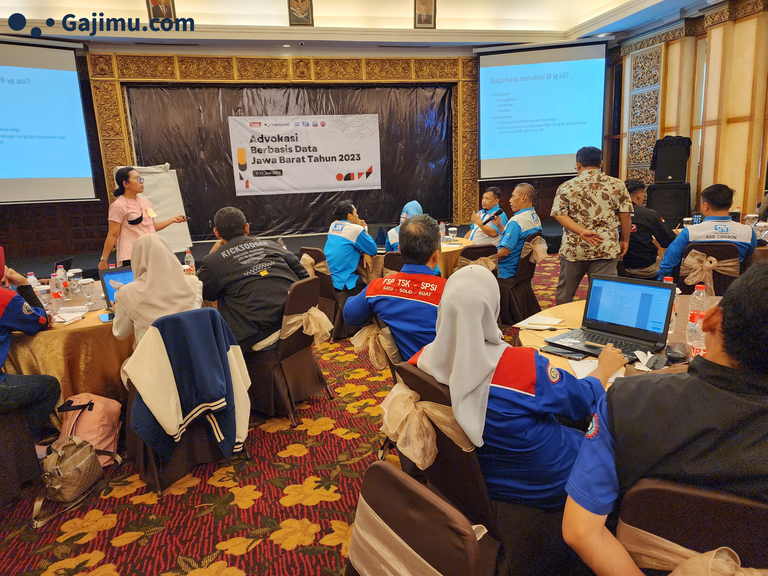
SECOND DAY, 10 JUNE 2023
On the second day, Venda Pratama from TURC delivered a session on data and information. The purpose of this session was to enable participants to understand the use of data and information specifically for advocacy. Firstly, data and information help in understanding the working conditions. Secondly, they help in identifying the root causes of problems. Thirdly, they assist in campaigns and propaganda. In factory-level advocacy, participants can utilize secondary data, including those generated within this program, such as DecentWorkCheck Survey and WorkersPriorityPolls. Muhammad Fakhri and Andina Ramadhani also introduced data sources available on the Gajimu website, such as Q&A on labor laws, wage checks, and garment factory information. In this session, participants practiced examining the DWC Survey result available on the factory information page.
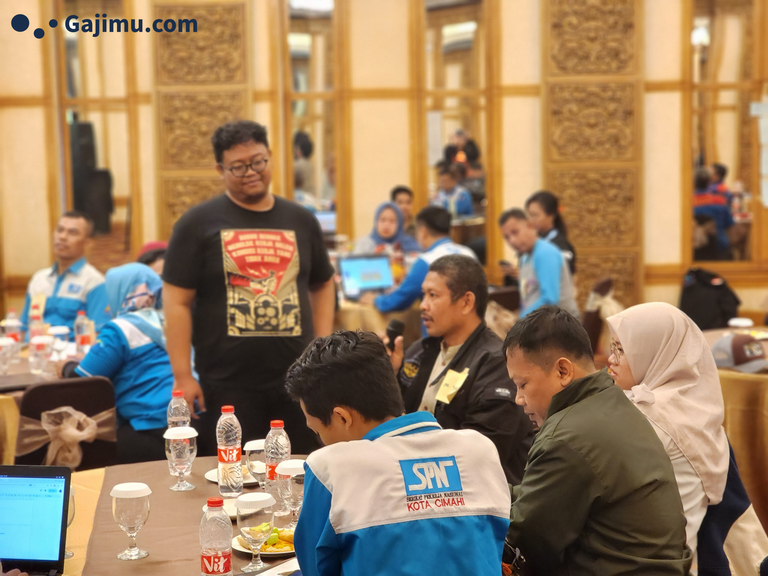
Continuing from the previous session, Faisal from Gajimu helped participants in reading visual data on the Gajimu Garmen website. Participants were encouraged to explore visual data from the DWC survey and bipartite reports per factory. The visual data provided detailed options, including data categorized by SP/SB organizations, respondents' gender, non-compliance with labor regulations, and frequently discussed negotiation topics in previous work feasibility surveys and workers' priority polls.
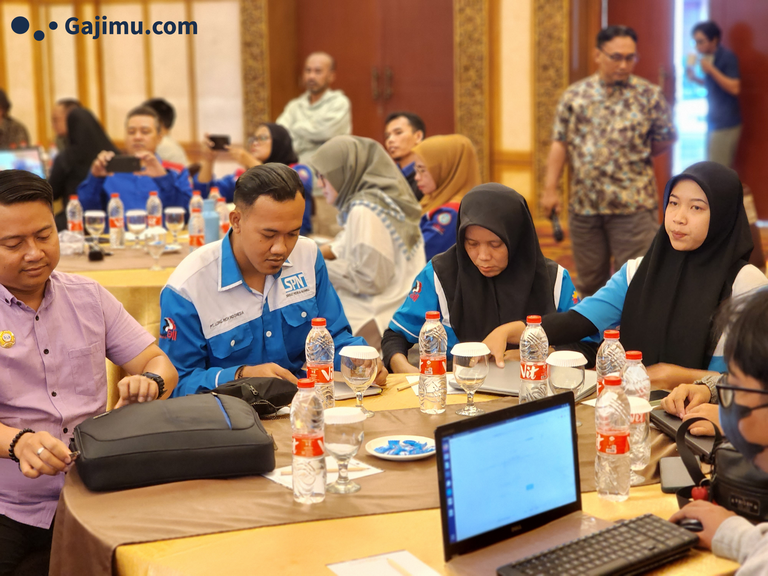
At the end of the second day's session, participants engaged in group discussions to map out problematic working conditions in their respective factories. The purpose was to determine the most urgent advocacy action plan to be carried out by their trade unions. In this discussion, facilitators accompanied the participants, including the programme interviewers and the Gajimu and TURC teams.
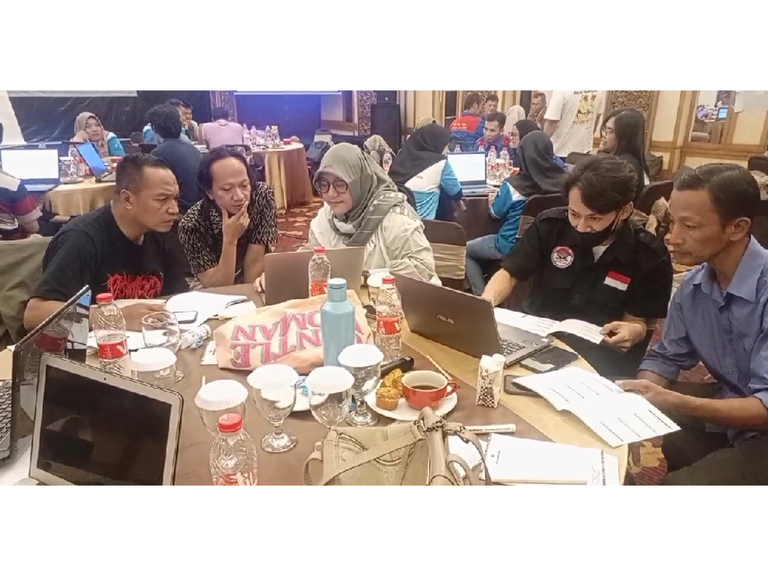
THIRD DAY, 11 JUNE 2023
On the final day, participants presented the result of their group discussions, including mapping and developing advocacy action plans for each factory. The majority of participants chose action plans aimed at advocating for the provision of clinic facilities within their companies. During this session, participants had the opportunity to provide feedback and input on the advocacy plans presented by their peers.
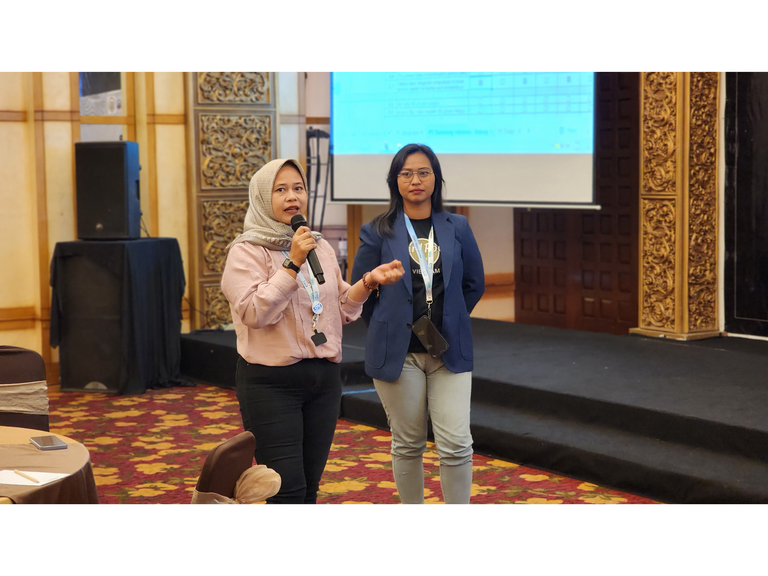
Before concluding the workshop, Ichsan Syaukani from TURC helped participants summarize the three-day workshop's keynotes. Participants also shared suggestions and inputs and successfully devised post-workshop follow-up plans, including sharing information, engaging in online discussions through a WhatsApp group, and organizing further meetings to discuss the action plan.
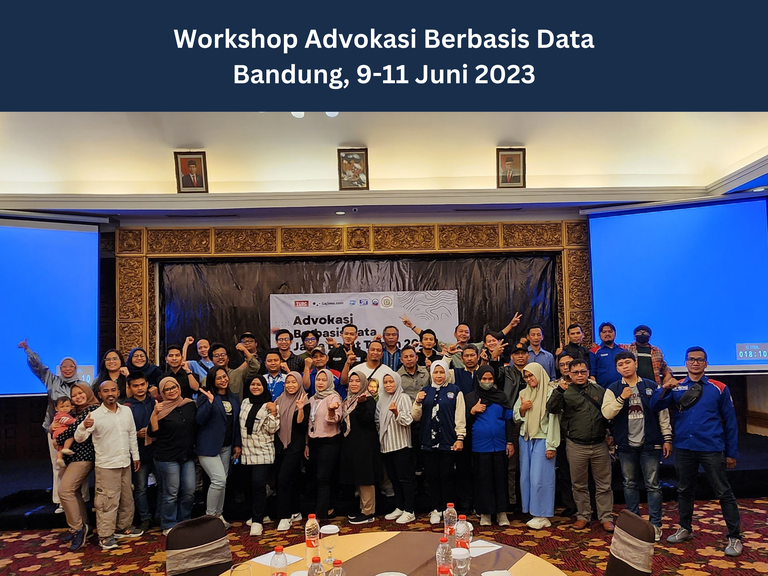
Learn more about the programme:
FAQ Data-Based Advocacy Workshop
FAQ Makin Terang Programme
Gender Responsive CBA Workshop in Cirebon
Interviewer Workshop
